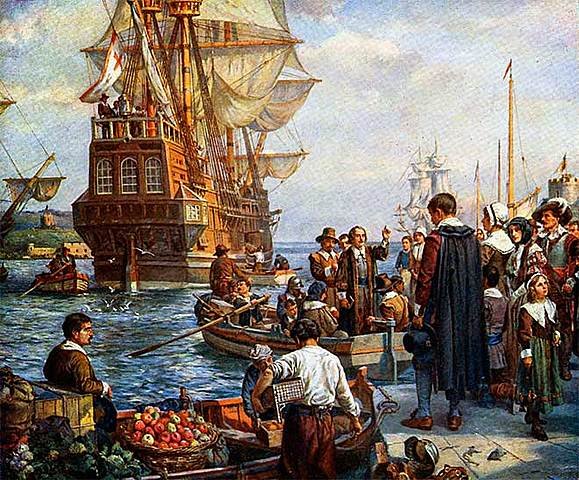Introduction to Friedrich Hayek
Friedrich Hayek, one of the most influential and controversial economists of the 20th century, stands as an emblematic figure in the field of free-market economics. Born on May 8, 1899, in Vienna, Austria, and awarded the Nobel Prize in Economics in 1974, Hayek left an indelible mark on the history of economic thought. His contribution goes beyond theory, influencing global economic policies and international trade.
Closely linked to the Austrian School of Economics, Hayek strongly advocated for the importance of the free market as an efficient mechanism for resource allocation. Opposed to state interventionism, he argued that free markets allow individuals to act based on dispersed information, achieving more optimal results than any centralized planning. His landmark work, The Road to Serfdom (1944), warns of the dangers of excessive state control and upholds individual liberty as a fundamental pillar for economic development.
Hayek’s legacy in international trade is also highly relevant. He insisted that trade barriers and protectionism weaken economies and restrict global growth. For Hayek, free trade not only promotes efficiency and innovation, but also strengthens relations between nations by creating economic interdependencies. His ideas have left a lasting impact on how we understand international trade and global economic cooperation.
Throughout his career, Hayek produced a vast body of literature, ranging from capital theory to the complex issues of social order and the economics of knowledge. His interdisciplinary approach and ability to connect various branches of knowledge earned him recognition that transcends the field of economics. This introduction serves to establish a foundation from which his impact and relevance can be explored in greater depth.

The Importance of His Ideas in International Trade
Friedrich Hayek’s theories have had a significant impact on the understanding of modern international trade, particularly his concepts of dispersed knowledge and spontaneous order. Hayek argued that in any economy, relevant knowledge is dispersed among all individuals rather than centralized in a single authority. This insight is crucial for understanding the complexities of global trade, as each participant in international commerce possesses unique information about resources, demands, and opportunities.
The principle of dispersed knowledge enables trade transactions to occur more efficiently, as each economic agent uses their specific knowledge to make informed decisions. This decentralized approach reduces the need for centralized interventions, allowing the global market to function more dynamically and adaptively in response to supply and demand variations.
On the other hand, Hayek’s concept of spontaneous order highlights the market’s ability to self-organize without centralized control. In the context of international trade, this means that trade relationships and the flow of goods and services can develop and adjust naturally by following market signals such as prices and supply and demand, rather than relying on strict government regulations.
It is essential to understand how these concepts allow for a more fluid and efficient interpretation of global trade. The elimination of unnecessary regulatory barriers, in line with Hayek’s ideas, enables smoother international transactions and fosters an environment where innovation and competition can thrive. Thus, Hayek’s theories not only offer an analytical framework for studying international trade but also provide a solid foundation for trade policies aimed at maximizing the benefits of the free market.
Core Principles of Hayek’s Thought: Spontaneous Order
Friedrich Hayek, a prominent advocate of economic liberalism, introduced the concept of «spontaneous order» to explain how institutions and international trade networks form and operate. According to Hayek, spontaneous order refers to the emergence of complex structures and systems resulting from the voluntary and uncoordinated actions of individuals, without the need for a central authority to direct them.
This core principle of Hayek’s theory maintains that when individuals pursue their own interests and act on the information and opportunities available to them, patterns of order and coherence emerge. In the context of international trade, these interactions generate networks of exchange and cooperation that develop organically, adapting and evolving based on the needs and preferences of market participants.
Spontaneous order manifests through various mechanisms, such as prices and competition, which reflect the dispersed knowledge individuals possess. These mechanisms allow resources to be allocated efficiently without centralized intervention. Instead of depending on a central planner who may lack all the necessary information, the market itself becomes an information-processing system that facilitates economic coordination.
Globally, examples of spontaneous order can be seen in how businesses connect across national borders, forming international supply chains and business collaborations. For instance, the manufacturing and distribution of technological products often involve cooperation among multiple companies in different countries, each specializing in various stages of the production process. This type of cooperation occurs naturally, guided by economic incentives and market needs, demonstrating how spontaneous order can overcome the limitations of centralized planning.

The Use of Knowledge in Society
One of Friedrich Hayek’s most influential works is his essay The Use of Knowledge in Society, published in 1945. In this article, Hayek argues that the knowledge required for economic decision-making is dispersed among all individuals in society. According to Hayek, no central planner can gather and use all the relevant knowledge, which exists in fragmented form among millions of people. Instead, the free market allows that dispersed knowledge to be used efficiently through the price mechanism, which acts as a subtle and effective communication system.
In this context, prices are not just monetary amounts but signals that aggregate and transmit information about the relative scarcity of goods and services as well as consumer preferences. When prices are freely set in the market, they reflect the dispersed knowledge of all participants. This allows individuals and businesses to make informed decisions that collectively tend to allocate resources in the most efficient way possible.
This theory has significant implications for international trade. In a global market where economies are interconnected, knowledge of production and consumer preferences cannot be centralized efficiently in any global body. Therefore, the efficiency of international trade largely depends on the free operation of markets. International prices, adjusted in response to global supply and demand, act as beacons that guide countries to specialize in areas where they hold comparative advantages.
The free movement of goods, services, and capital across national borders—guided by the price mechanism—optimizes resource allocation on a global scale. By enabling dispersed knowledge to be used effectively, market forces contribute to economic growth and the development of a more dynamic and resilient international economy.
Key Contributions of Hayek to International Trade
Friedrich Hayek, one of the most influential economists of the 20th century, stood out for his staunch defense of economic liberalism and free trade as essential pillars for achieving greater efficiency and global economic prosperity. Hayek argued that open competition and the free exchange of goods and services are key to the optimal distribution of resources, minimizing the harmful influence of state intervention on the international economy.
One of Hayek’s central theses was his opposition to trade barriers and protectionist policies. According to him, these distort prices and resource allocation, resulting in inefficiencies that affect both producers and consumers. Eliminating such barriers, Hayek believed, would foster an environment in which businesses could compete on equal footing, encouraging innovation and resulting in economic benefits for all nations involved in international trade.
In addition to his stance on free trade, Hayek also made significant contributions to monetary theory. His work The Denationalization of Money (1976) proposes the elimination of the state monopoly over currency issuance, allowing for competition among different currencies. This proposal aimed to facilitate more stable and effective international transactions by reducing the risks associated with monetary fluctuations that often disrupt global trade.
Essentially, Hayek advocated for a system where market forces, rather than government intervention, guide economic activity. His contributions remain a reference point in contemporary debates on globalization and free trade, emphasizing the importance of policies that encourage competitiveness and reduce economic barriers between countries. Through his influence, Hayek has left a lasting impact on how we understand and promote international trade in the modern era.
Experts Influenced by Hayek
Friedrich Hayek, with his fervent advocacy of the free market and critical view of government intervention, has left an indelible mark on the work of many prominent economists. Among his most notable followers is Milton Friedman, who became known for his strong opposition to protectionism. Friedman repeatedly argued that protectionist policies such as tariffs and import quotas not only hinder international trade but also harm local consumers by raising prices and reducing product variety.
Another prominent economist influenced by Hayek is Israel Kirzner, known for his contributions to the theory of entrepreneurship and the discovery process. Following Hayek’s teachings, Kirzner delved into how entrepreneurs identify and exploit market opportunities and inefficiencies, thereby facilitating coordination and economic balance. According to Kirzner, the discovery process is essential in a free market, enabling information to flow and available resources to be used efficiently.
James Buchanan, also inspired by Hayek, applied his ideas to develop a comprehensive analysis of how political processes influence economic and trade policies. Buchanan, known for his work in public choice theory, explored how political actors—motivated by their own interests—may design policies that benefit specific industries or groups at the expense of general welfare. This analysis has been crucial in understanding the dynamics between politics and economics, emphasizing the importance of limiting government intervention to maintain competitive and functional markets.
The influence of Friedrich Hayek extends beyond these economists, permeating a vast chain of modern economic thought that values individual freedom and the critical role of markets in the efficient distribution of resources.
Impact and Legacy in International Trade
Friedrich Hayek, renowned for his advocacy of the free market, has left a lasting legacy in the field of international trade. His views on the importance of free trade and global competition have significantly shaped international trade policies. Hayek argued that unrestricted trade allows for more efficient resource allocation, promoting innovation and economic growth. This perspective has been integrated into numerous international agreements and treaties, encouraging market liberalization and reducing trade barriers.
The impact of Hayek’s ideas is particularly evident in the process of globalization. Over the past decades, his vision has helped shape the economic policies of various countries, supporting the idea that open markets are essential for global development. For example, agreements such as the North American Free Trade Agreement (NAFTA) and the creation of the World Trade Organization (WTO) reflect Hayekian principles by encouraging trade liberalization and international cooperation.
Moreover, Hayek has left a lasting imprint on contemporary debates about international trade, especially in light of recent protectionist movements. His arguments against protectionism and in favor of sustainable globalization continue to resonate today. As some nations implement measures to protect local industries, Hayek’s teachings on the benefits of free trade and global competition remain a vital counterpoint, reminding us that economic isolation can be more harmful than beneficial in the long run.
The relevance of Friedrich Hayek’s ideas in international trade cannot be overstated. As the world continues to navigate the complexities of the global economy, his legacy continues to provide a solid foundation for understanding and promoting open and competitive markets. Thus, Hayek’s teachings remain a fundamental guide for those advocating for deeper global economic integration.
Criticism and Controversies
Friedrich Hayek was a prominent figure in defending the free market, but his work was not without criticism. Many economists, particularly those aligned with Keynesian theory, argued that his emphasis on the free market was insufficient to manage economic crises. Keynesians maintained that while Hayek defended the efficiency of the free market in times of stability, his model failed to provide effective solutions during periods of economic volatility. According to them, the absence of government intervention could lead to mass unemployment and prolonged recessions—problems that, if unaddressed, would negatively affect international trade.
Another significant criticism from Keynesians targets the concept of “spontaneous order,” a core principle in Hayek’s theory. This concept suggests that in a free market environment, individuals will act freely and, in doing so, generate an efficient economic order without the need for state intervention. However, in a global context, some critics argue that this lack of regulation can exacerbate inequality. Globalization and economic interdependence between nations are complex phenomena that, according to these critics, require some level of oversight to prevent abuse and ensure a more equitable distribution of wealth.
Additionally, there are those who believe that Hayek’s approach may lead to international crises. The absence of strict rules may enable irresponsible business practices that affect not only domestic markets but also have global repercussions. For example, in financial markets without adequate oversight, unchecked speculation can lead to economic bubbles that, when they burst, negatively impact international trade and promote global economic instability.
Thus, while Hayek’s ideas on the free market have had a significant influence, they have also been the subject of considerable debate. The extensive criticism and controversy reflect the diversity of opinions on how to address the complexities of the global economy and international trade.



I wanted to take a moment to commend you on the outstanding quality of your blog. Your dedication to excellence is evident in every aspect of your writing. Truly impressive!
I loved as much as you will receive carried out right here The sketch is attractive your authored material stylish nonetheless you command get got an impatience over that you wish be delivering the following unwell unquestionably come more formerly again since exactly the same nearly a lot often inside case you shield this hike
Your blog is a constant source of inspiration for me. Your passion for your subject matter is palpable, and it’s clear that you pour your heart and soul into every post. Keep up the incredible work!
Just wish to say your article is as surprising The clearness in your post is just cool and i could assume youre an expert on this subject Fine with your permission allow me to grab your RSS feed to keep updated with forthcoming post Thanks a million and please keep up the enjoyable work
Your writing is a true testament to your expertise and dedication to your craft. I’m continually impressed by the depth of your knowledge and the clarity of your explanations. Keep up the phenomenal work!
Your blog is a treasure trove of valuable insights and thought-provoking commentary. Your dedication to your craft is evident in every word you write. Keep up the fantastic work!
Your writing is like a breath of fresh air in the often stale world of online content. Your unique perspective and engaging style set you apart from the crowd. Thank you for sharing your talents with us.
Hello my loved one I want to say that this post is amazing great written and include almost all significant infos I would like to look extra posts like this
Your blog is a constant source of inspiration for me. Your passion for your subject matter shines through in every post, and it’s clear that you genuinely care about making a positive impact on your readers.